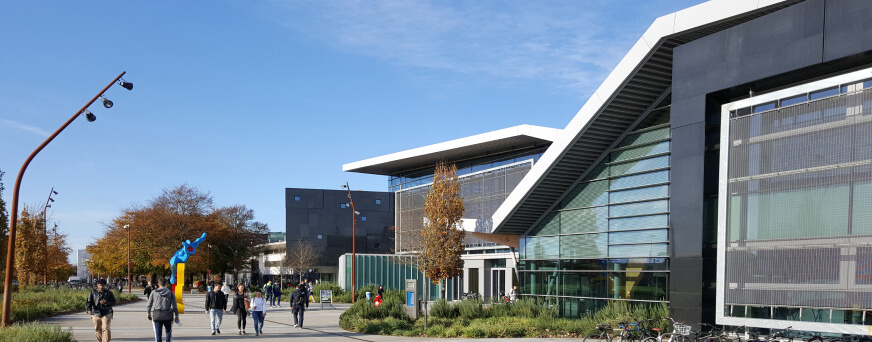Explore University of McCordsville’s Eligibility Criteria for Students Worldwide
High School Diploma, GED or equiv. International Education
84 Hours
1 Year (Self-Paced) Program
14
This course provides a sociological perspective on crime and criminal justice by treating social structure and social inequality as central themes in the study of crime and major factors in society's treatment of criminals.
Sociology is a comprehensive course that offers you a global perspective to help you better understand your own lives, provides strong focus on social diversity that allows you to see the impact of race, class, and gender, and focuses
This course examines corrections from an academic view and from those who are at the center of the system. It includes correctional history and theory, yet concentrates on what professionals do, why they do it, and the challenges they face every day.
This course contextualizes current events within the criminal justice literature. Highlighting a variety of high-interest issues, it explains you how recent happenings relate to criminal justice studies.
This course explains the procedural aspects of the criminal justice system systematically, making the concepts easy to apply to any state’s specific procedural laws and procedures systematically.
This course presents crime detection as a dynamic field relying heavily on the past experiences of investigators as well as recent practical and technological innovations.
This course builds the procedural knowledge and real-world skills needed for today’s paralegal. It places an emphasis on profession and skills. Places an emphasis on basic foundations including: developing critical thinking and procedural skills; learning about technology applications in law office; and understanding how to handle ethical situations in workplace.
This course makes the comparative approach far more understandable and accessible, helping you recognize the growing importance of an international perspective. It organizes key concepts in a sequence that you will already find familiar; progressing from issues of law to the agencies of police, courts, and corrections.
This course provides an introduction to the basic methods, techniques, and procedures of social science research. Qualitative and quantitative methods, such as survey research, experiments, observational/field work, program evaluation, and interview approaches appropriate to the study of criminal justice are also examined.
This is a detailed study of police organization, administration and leadership. This course emphasizes principles of organization, supervisory problems within police organization and leadership techniques for effective police performance. Detailed explanations of discipline, leadership, motivation and performance appraisals will also be covered.
This course examines interviews of witnesses, informants, and complainants as a communicative relationship. It includes demonstration, study, and practice of acceptable techniques and procedures, in accordance with due process.
This course examines the history, structure, and behavior of the police in society. You will be exposed to such topics as the heritage of policing, police systems, the patrol function, police discretion, police-community relations, and police accountability.
This course examines the history of police-community relations and the role of both the community and the police in establishing a crime fighting partnership for success. It emphasizes building relationships between police officers and the community they serve.
This course discusses examination of information technology in the public sector; Police Technology course discusses law enforcement as an information-intensive task. Whether interviewing victims, interrogating subjects, or gathering evidence, this course discusses the cutting-edge technology needed to handle the incredible load of information that goes along with an average investigation.
| Tuition Fee Breakdown 1 | Cost |
|---|---|
| ASSOCIATE TO BACHELORS DEGREE | $18,480 |
| Medical Insurance | $0.00 |
| Personal Expenses | $0.00 |
| Study Materials | $0.00 |
| Food Cost | $0.00 |
| Total Tuition Fee | $18,480 |
At University of McCordsville, we champion the convergence of affordability and opportunity. Our steadfast commitment to accessible education guarantees that high-quality learning is accessible to all. By eliminating financial obstacles, we grant students the freedom to thrive without the burden of overwhelming tuition costs, empowering them to carve out a bright and promising future.

| Topics Covered in This Course: | |||||||||||||||||||||||||||||||||||||||
|
| Topics Covered in This Course: | |||||||||||||||||||||||||||||||||||||||||||||||||||||
|
| Topics Covered in This Course: | |||||||||||||||||||||||||||||||||||||
|
| Topics Covered in This Course: | |||||||||||||||||||||||||||||||
|
| Topics Covered in This Course: | |||||||||||||||||||||||||||||||
|
| Topics Covered in This Course: | |||||||||||||||||||||||||||||||||||||||||||||||||||
|
| Topics Covered in This Course: | |||||||||||||||||||||||||||
|
| Topics Covered in This Course: | |||||||||||||||||||||||||
|
| Topics Covered in This Course: | |||||||||||||||||||||||||||
|
| Topics Covered in This Course: | |||||||||||||||||||||||||||||||||||
|
| Topics Covered in This Course: | |||||||||||||||||||||||||||||||||||||||||
|
| Topics Covered in This Course: | |||||||||||||||||||||||||||||||
|
| Topics Covered in This Course: | |||||||||||||||||||||||||||||||||||
|
| Topics Covered in This Course: | |||||||||||||||||||||||||||||||||||||||||||||||
|
“Every minute spent under the guidance and supervision of the University of McCordsville was worth it for a student like me.”

“An amazing online platform, supportive staff, and valuable career resources. I highly recommend the University of McCordsville.”

“Scholarship opportunities, personalized support, and impactful learning. I am grateful for my journey at the University of McCordsville!”
